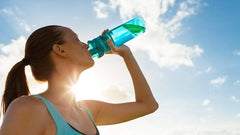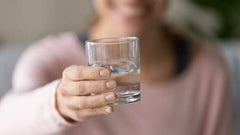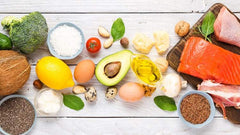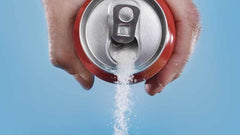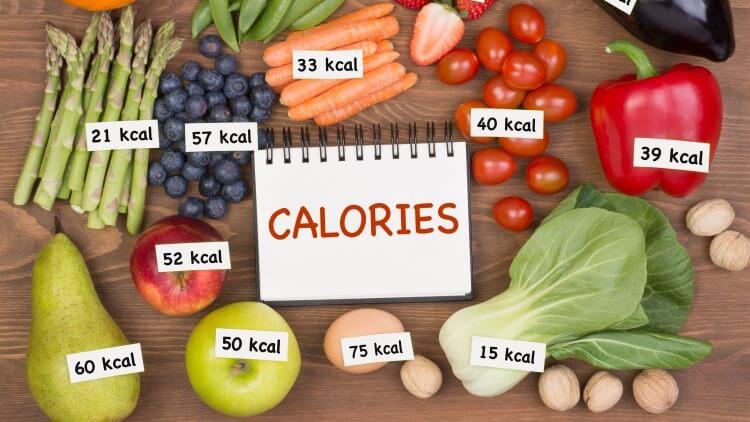
The 800 Calorie Diet Plan and It’s Weight Loss Benefits
- What is the 800 calorie diet?
- What food can I eat on an 800 calorie diet?
- Benefits of the 800 calorie diet plan
- Dangers of such a low calorie diet
- 3 days 800 calorie diet plan menu
- How to transition from 800 calorie diet
Weight loss is a huge trend these days. With rates of obesity skyrocketing in the United States and in some other areas of the world, it’s no wonder that people are beginning to try new alternatives to help them lose weight. Things like working out, taking supplements, and changing diets are among the most popular methods.
One of the popular diets to emerge in recent years is known as the 800-calorie diet. The diet is fairly self-explanatory, but there is some controversy as to whether or not it’s actually possible to eat this diet and get all the nutrients that you need to be healthy. In this article, we’re going to discuss the 800-calorie diet and weigh out (no pun intended) its pros and cons.
What is the 800 calorie diet?
The 800-calorie diet is a very interesting diet plan that’s contested to help people lose weight very quickly. The 800-calorie diet plan is suggested to be particularly effective at helping to burn belly fat, and some professionals surgeons like Dr. Nowzaradan recommend patients go on such low-calorie diets before surgery.
It’s understood that one of the most important aspects of losing weight is to regulate your calorie intake. People who consume more calories than they burn are going to save those extra calories as fat. Calories are energy, and energy that isn’t used has to be stored in the body somewhere.
One of the reasons that the 800 calorie diet is appealing is because it creates such a calorie deficit that people may actually be able to lose some weight without actually putting that much effort into their exercise routine.
This may sound like an excellent opportunity – according to the University of California, you can lose up to 5 pounds a week on this diet – but in reality, it’s actually not healthy. The reason that the body loses weight is that the body actually thinks that it’s starving if you consume much less than 1,000 calories per day.
For this reason, many of the 800 calorie diet success stories are from obese people – those who have a lot of extra body mass to spare. It’s rather unsafe for anyone who doesn’t. People who aren’t obese may benefit more from a low sugar diet.
Regardless, the diet is generally quite uncomfortable for the first few days – people are often wracked with hunger pangs, fatigue, and other symptoms of starvation. Fortunately, these symptoms tend to go away after a week or so. Issues like constipation, diarrhea, and nausea may persist for longer.
What food can I eat on an 800 calorie diet?
Many people who approach the 800-calorie diet are worried because they feel like they’re going to have heavy restrictions placed upon the types of food they’re going to be able to eat.
This is not strictly true – the 800-calorie diet does not restrict you from eating any foods in the same manner as, say, the keto diet or a paleo diet. You can still eat whatever types of food you want, you just have to be cautious and aware of how much you’re eating. For example, if you really need that cup of ice cream in the evening, you’re going to have to cut out most of your other caloric sustenance for the day.
The key here is to bring awareness into the types of food that you’re eating, the frequency that you eat them, and the amount of energy that they provide. Here are some general ideas about the kinds of food that you’ll want to eat on a low-calorie diet.
Eat:
- Fresh and cooked vegetables. You’d be surprised at how many vegetables you can pack into your body at an extremely low-calorie count, and meals made of sauteed vegetables cooked in soup stock or with spices can fill you up without costing a lot of calories.
- Fresh fruit is another great food source that can fill you up with fiber, making you feel full on surprisingly few calories.
- Whole grains and legumes. Things like beans, lentils, and rice may be higher in calories, but they will provide you with protein. Protein is digested very slowly and will help to keep you full for longer. Make sure to get whole grain brown rice with the hull still attached.
- Complex carbohydrates, like sweet potatoes and whole grain rice, will provide you with a more sustainable dose of energy. Complex carbohydrates are digested slower, have a less marked impact on blood sugar, and will keep you full for longer.
Avoid:
- Processed and refined sugars. Preferably, avoid any kind of sugar at all. Sugar is basically concentrated calories with no nutritional value, and even a simple teaspoon of sugar will significantly increase your daily calorie count.
- “White” foods and processed foods. White foods, like white bread and white rice, are generally paled versions of foods that were once healthy. These highly-processed foods contain very few nutrients and will cost you a lot of calories. White potatoes and starchy vegetables are also generally high in calories.
- Oils and fats. While oils and fats are necessary for the body, they are generally very high in calories. Try to saute your vegetables in water instead of oils to reduce your calorie intake.
Benefits of the 800 calorie diet plan
The main benefit of the 800-calorie diet plan is it helps you lose weight quickly. This has been proven – obese people are much more likely to shed extra pounds when they are only consuming 800 calories a day. However, there are some other benefits that have been attributed to the 800-calorie diet.
- The 800-calorie diet has been shown to actually help reverse type-2 diabetes. For this reason, it has been dubbed the Blood Sugar Diet, and there are many 800-calorie diet plan success stories in this regard.The study, which followed 298 patients with type-2 diabetes, showed remarkable results. Most patients found the diet was easy to stick to. Many of them lost a significant amount of weight and were able to lower their blood sugar levels so much they were considered ‘normal’.
- If you follow an intermittent fasting schedule (avoiding your evening or morning meal) then your body’s metabolism will get a serious boost. This can improve a number of areas of your health and will certainly help to improve the rate at which you lose weight.
- The 800-calorie diet is a good option for people who are unable to get to the gym or to get out and exercise, but you should still try to move more when you can regardless.
Dangers of such a low calorie diet
While the benefits of a low-calorie diet may sound appealing, it’s important to be aware of the potential dangers associated with this sort of extreme low-calorie dieting.
-
- It’s incredibly hard to get all the nutrients you need from a diet this low in calories, and unless you have a qualification in nutrition or dieting, it’s unlikely you’ll meet your daily requirements without supplementing.
If you use any of your calories to consume much else besides vegetables, fruits, whole grains, and fish you’ll probably run into a mild nutritional deficit.
- People on extremely low-calorie diets are at a higher risk of having high levels of uric acid present in the body. This substance contributes to the development of gallstones, so anyone attempting the 800-calorie diet should be well aware of this risk.
- In the long-run, low-calorie diets will actually reduce your metabolism, meaning that you’ll burn fewer calories than normal. This reduced metabolism tends to persist for much longer than the duration of the diet.
- Low-calorie diets also cause muscle loss – one of the reasons that they contribute to a lower metabolism. This also means that you’re more likely to experience fatigue and weakness. You can try to avoid this by eating more protein and continuing to exercise.
- Low-calorie diets can reduce the number of vital
 hormones that your body produces. When you have lower levels of testosterone and oestrogen, this leads to a decrease in the health of your bones and can also negatively impact your fertility.
hormones that your body produces. When you have lower levels of testosterone and oestrogen, this leads to a decrease in the health of your bones and can also negatively impact your fertility.
Read also: Benefits of cayenne pepper for weight loss >>
3 days 800 calorie diet plan menu
If you believe that this diet is suitable for you, then this basic 800 calorie diet plan can give you a good outline to follow if you want to stay healthy while you’re following the diet. If you feel like snacking between lunch and dinner, try to have a cup of green tea – this will energize you and curb your appetite.
Day 1:
- Before breakfast: a glass of water with a teaspoon of apple cider vinegar to boost metabolism.
- Breakfast: Oatmeal sweetened with a banana or an apple.
- Lunch: Vegetables, sauteed in water with spices, or clear chicken, fish, or vegetable soup
- Dinner: Baked fish with grilled vegetable
Day 2:
- Before breakfast: a glass of water with a teaspoon of apple cider vinegar OR a cup of water that has had fenugreek seeds soaking in it overnight. Both are great for metabolism.
- Breakfast: green smoothie – kale and fruit with 2 almonds for protein, OR quinoa, spiced with two almonds
- Lunch: Vegetables in a lettuce wrap OR tuna salad (no mayo – use spices and onions or pickles for flavor)
- Dinner: Peppers stuffed with chickpeas OR grilled chicken and vegetables
Day 3:
- Before breakfast: a glass of water with either of the prior suggestions OR mixed with lime juice
- Breakfast: 1 boiled egg, 1 glass of fat-free milk OR green smoothie (avocado, celery, and chia seeds provide a great balance of nutrients)
- Lunch: Baba ganoush with pita OR smoked fish with veggies
- Dinner: Gourd soup OR sauteed chicken with veggies
How to transition from 800 calorie diet
If you’ve finished an 800-calorie diet, you’re probably eager to jump back into regular-sized portions again. It’s important that you don’t do this, however, since it can be rather dangerous for your health. It’s important that you wean yourself off of any low-calorie diet gradually, otherwise, you might experience other health issues.
First, figure out how many calories you actually need to maintain your new weight. Likely, this means you probably won’t be eating as many calories as you did before you began dieting.
Be sure to slowly introduce new foods into your diet, working up with more fresh fruits and vegetables. If your 800-calorie diet was largely liquid-based, start by eating softer foods and gradually transition into heavier foods so as to not shock your body.
If you were fatigued during your diet, gradually ease yourself back into exercise so you don’t damage your body. This will give your muscles and joints time to adjust.
Conclusion
Low-calorie diets, such as the 800-calorie diet, can certainly be beneficial for the health of certain people. However, for the average person, extremely low-calorie diets are more likely to cause harm than they are to help. We would recommend you keep your calorie intake no more than 400 calories below your RDA for the healthiest diet plan. For most women, this will mean eating no less than 1200 calories per day.
Hopefully, this article has helped you better understand the potential benefits and risks of a diet like this.
>> W >>

